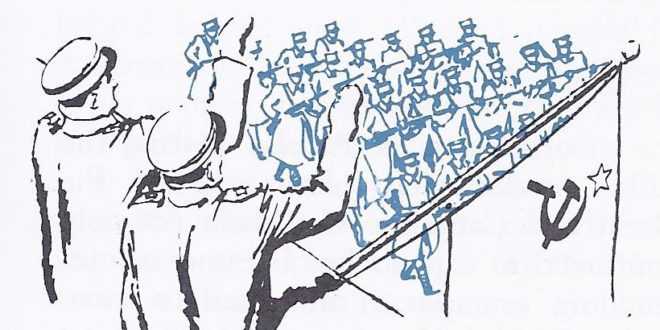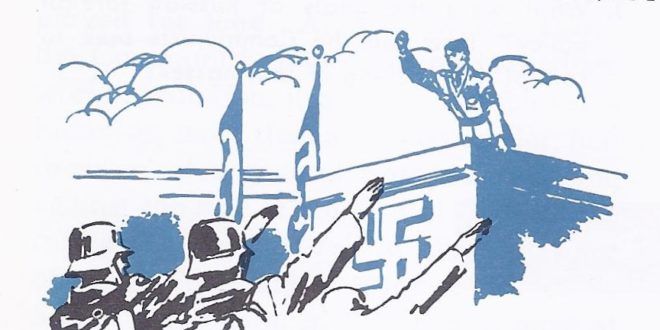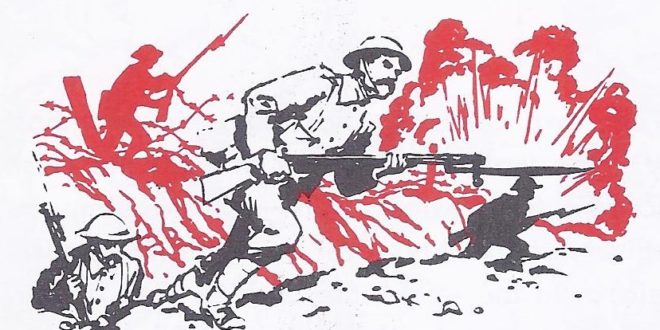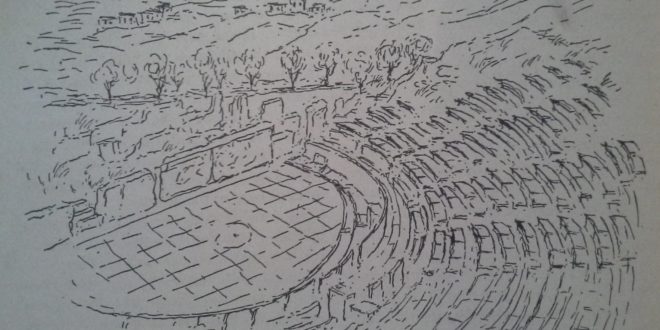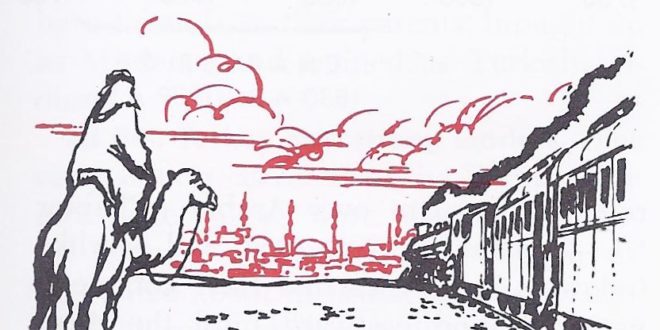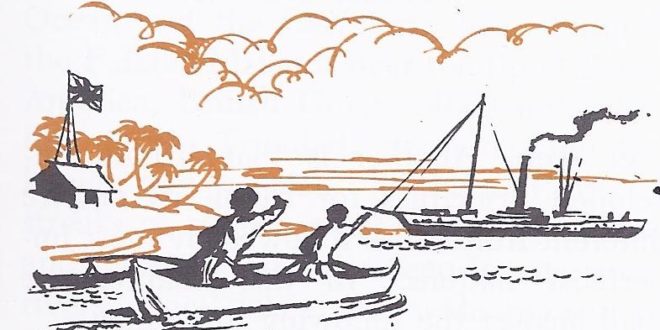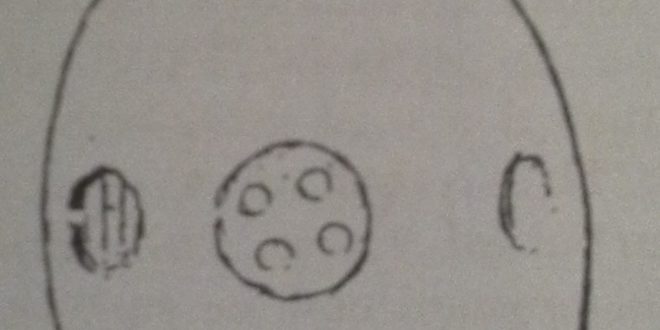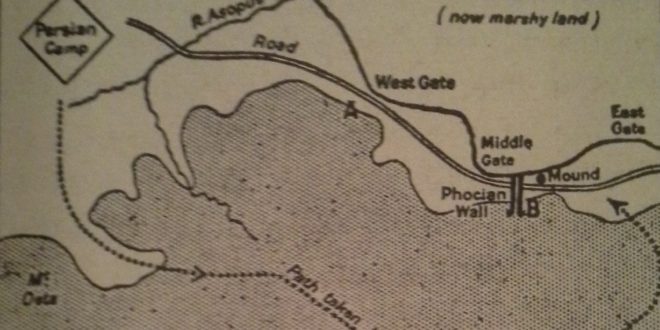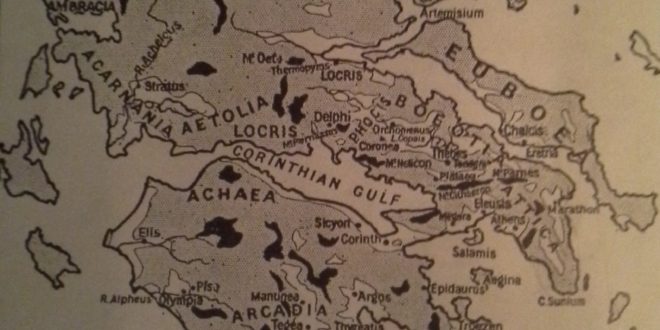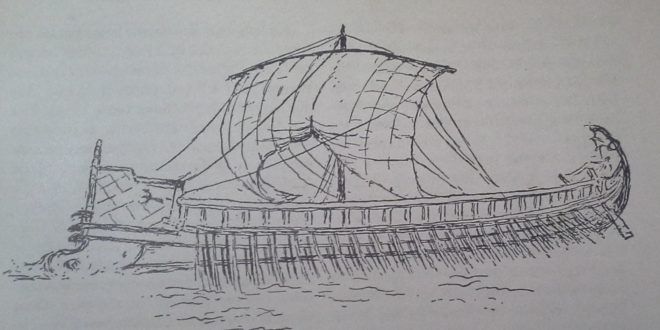Dictators came to power in many European countries during the twenty years following World War I. About 9:20 P.M. on February 27, 1933, the rumble and clang of fire engines echoed through the heart of Berlin, capital city of Germany. Down the broad avenue called Unter den Linden the trucks roared toward the Reichstag building where the German legislature met, but the firemen were too late; they could not check the flames which licked savagely from the windows. Within a few hours the big building was no more than a smoke-stained skeleton. The Reichstag fire was a grim prophecy of what lay ahead for Germany. Investigation proved that the fire had been started at many points in the building at the same moment; but by whom? Police claimed they had the answer when they arrested a dull-witted fellow found poking about the fire-gutted building that night. He had been arrested before for setting fires; besides, they said, he was a Communist. It is quite possible, however, that the person mainly responsible for the fire was a man with unruly hair, burning eyes and a toothbrush mustache. The dictator of all dictators, his name was Adolf Hitler. The confusion and hard times which Germany had suffered since its defeat in World War I provided an excellent opportunity for power-hungry dictators like Hitler. A few months before the Reichstag fire he had been named Germany’s Chancellor, or Prime Minister. Neither dictators like Hitler nor the Nazi Party which backed him had a firm grip on the government. (The name Nazi consists of the first four letters of the German word for “National,” in the name of the National Socialist Party.) A troubled Europe saw the rise of dictators in Italy and Germany and violent civil war in Spain. A new election was set for March 5. Something had to be done to …
Read More »